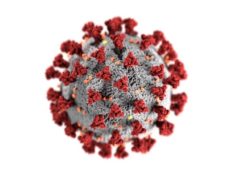 Society for Vascular Surgery (SVS) Vascular Quality Initiative (VQI) venous case volume and registry data entry was “sharply reduced” during the initial phase of the COVID-19 pandemic, a retrospective review has concluded. Findings were published online in the Journal of Vascular Surgery: Venous and Lymphatic Disorder, with authors Ashorne K Mahenthiran (Northwestern University, Chicago, USA) and colleagues proposing that venous specialists must seek “new and innovative ways to practice” in what they suggest will be a “new abnormal” future.
Society for Vascular Surgery (SVS) Vascular Quality Initiative (VQI) venous case volume and registry data entry was “sharply reduced” during the initial phase of the COVID-19 pandemic, a retrospective review has concluded. Findings were published online in the Journal of Vascular Surgery: Venous and Lymphatic Disorder, with authors Ashorne K Mahenthiran (Northwestern University, Chicago, USA) and colleagues proposing that venous specialists must seek “new and innovative ways to practice” in what they suggest will be a “new abnormal” future.
In response to the pandemic, Mahenthiran et al write that “an abrupt pivot of VQI physician members away from standard clinical practice to a restrictive phase of emergent and urgent vascular procedures occurred”.
In order to assess the effects of this shift on the SVS VQI venous procedure registries—which cover varicose vein and inferior vena cava (IVC) filter interventions—the investigators first conducted an SVS Patient Safety Organisation (PSO) survey of data managers and physicians in May 2020. Based on the responses, they performed a retrospective review of VQI venous registry volume between the first quarters of 2019 and 2020. The authors highlight that COVID-19 variables have been inserted into all registries to track outcomes after the onset of the pandemic.
Mahenthiran and colleagues report that 74% of respondents to the survey “adopted a restrictive pandemic operating policy” to urgent and emergent procedures. However, they also found that one-half of surgeons continued to perform in-hospital ‘time sensitive’ elective procedures, despite policy shifts. In addition, they relay that survey results showed a five-fold reduction in VQI venous procedural volume in the first quarter of 2020, with contributing factors including reassignment/furlough and case volume decline, and, finally, the authors report that ambulatory venous practices “decreased significantly”.
“The consequences of delaying vascular procedures for ambulatory venous practice remain unknown,” Mahenthiran and colleagues write in the discussion of their findings. They suggest that venous treatment delays “may lead to progression of thrombotic disease, embolisation, or worsen morbidity of post-phlebitic limbs” and note that further consequences of a pandemic shutdown “will likely be amplified if postponement of elective vascular care extends beyond a short window of time”.
Considering future actions, they stress that “it will be important to monitor disease progression and case severity as a result of policy shifts adopted locally in response to pandemic surges”.
Mahenthiran et al acknowledge some limitations of the present study. For example, they address the “subjective nature” of an elective surgery. In addition, they state that survey questions concentrated on inpatient care for both arterial and venous procedures and thus the majority of responses were more germane to the arterial side. Furthermore, they note that office-based labs were likely under-represented in both survey responses and procedure volumes.
The investigators summarise that the vascular surgery community response to the COVID-19 pandemic resulted in a “dramatic reduction” in elective case volumes, with most practitioners performing emergency and select urgent procedures only.
“Vascular surgeons’ partnership with public health experts and epidemiologists to study the pandemic impact and our response to the public health crisis should be ongoing,” they conclude.
More Venous News articles on COVID-19 can be found here.











